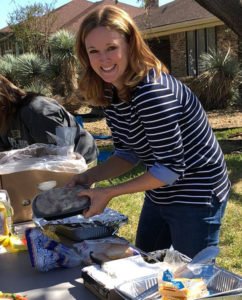Truth and vision essential in Christian civic engagement
WACO—Christians have the opportunity to speak much-needed truth in a polarized society because they offer a vision informed by the reality of the resurrected Christ, ethicist Vincent Bacote told an audience at Baylor University’s Truett Theological Seminary.
Bacote, director of the Center for Applied Christian Ethics at Wheaton College, delivered the T.B. Maston Lecture in Christian Ethics at Truett Seminary.
In the current “time of great polarization and vexation in our society,” Christians face the challenging reality that the “reputation of the church and its witness at times is not unlike a ship that has been hit by a torpedo,” Bacote said.
The good, the bad and the mundane
As any Christian confronts “the complex reality that is out there in the world,” he or she faces twin temptations—to respond as a Pollyanna or as a pessimist, he said.
The Pollyanna who speaks only about joy ignores the unmistakable truth that “there are really bad things that happen,” and is at risk of being recognized either as a liar or as delusional, Bacote asserted.
On the other hand, the pessimist sees everything as “the beginning of the apocalypse,” and refuses to acknowledge the truth that “there are good things that happen,” he said
The Christian who embraces truth recognizes the world includes the good, the bad and the mundane, Bacote said.
Christians should see the present world in light of the biblical vision that proclaims Christ is risen but has not yet returned to set all things right, he insisted.
“You know what’s at the back of the book. You know what the story says,” he said. “What would happen if you acted like it?”
Apply truth and vision to race
Principles of truth and vision particularly should inform how Christians look at issues of race, Bacote asserted.
Respect for truth demands Christians recognize that Europeans invented the modern concept of race and succeeded in making “white” normative, he insisted.
Furthermore, in the United States, some Christians used the Bible to support the concept of white supremacy and keep in place societal structures that oppressed people of color, he said.
“There are people today who hide behind the guise of the word ‘gospel,’ using that commitment to the gospel to either avoid, resist or neglect talking about race,” he added.
It is “delusional” to equate improvement in race relations with arrival at the goal, he insisted.
“There is so much more that needs to happen,” Bacote said. “We have a lot to deal with because of what’s hard-wired into our society.”
At the same time, those who address issues of race and other matters of social justice also must recognize potential hazards, he warned.
“You can be caught by the thing you care about. … When you allow anger to transition to bitterness, you are being corroded and eroded by the thing you care about,” he said.
Seek the flourishing of everyone
As Christians recognize Christ is risen and the Holy Spirit is in the world today, that vision should inspire them to “take seriously” what Jesus said about love for one’s neighbor, Bacote said.
Living for neighbors means acting to make possible their flourishing, he asserted.
“How am I an agent for seeking the flourishing of everybody?” he asked. “Are you really willing for Jesus to interrogate all your commitments?”
Looking at the “complicated” reputation of evangelical Christians today, Bacote asked, “What if Christians refused to traffic in apocalyptic language? What if Christians refuse to be captured by fear and anger?”
The reputation of Christians could be transformed if they honestly acknowledged the horror in the world but acted as if they truly “know the end of the story,” he insisted.
Because they possess the vision that Christ will set things right in the end, Christians can model sanity in a world gone crazy, he said.
“Every terrible thing always has a comma after it—never a period, until Jesus comes again,” he said. “Until then, everything else is temporary. It’s got an expiration date.”
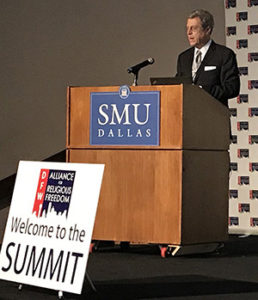

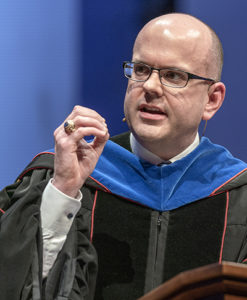
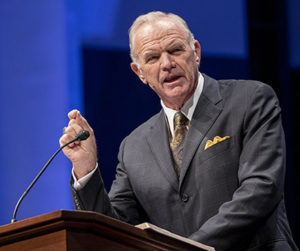


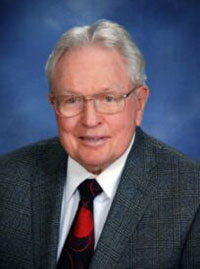 Chester C. O’Brien of Amarillo, retired pastor and denominational executive, died Oct. 20. He was 94. O’Brien was born on Nov. 25, 1924, to Chester and Katie O’Brien in Fort Worth. He graduated from high school in Big Spring, and he went on to earn degrees from Hardin-Simmons University and Southwestern Baptist Theological Seminary. O’Brien married Bonnie Louise Ball on June 25, 1946 in Big Spring. He was pastor of Baptist churches in Big Spring, Denton, Gruver and Wellington, as well as in Wolf Creek, Ky., and Tucumcari, N.M. He was the founding pastor of Paramount Baptist Church in Amarillo, served Amarillo Baptist Association as the director of missions and the Baptist Convention of New Mexico as executive director. He retired from full-time ministry after serving as associate pastor of
Chester C. O’Brien of Amarillo, retired pastor and denominational executive, died Oct. 20. He was 94. O’Brien was born on Nov. 25, 1924, to Chester and Katie O’Brien in Fort Worth. He graduated from high school in Big Spring, and he went on to earn degrees from Hardin-Simmons University and Southwestern Baptist Theological Seminary. O’Brien married Bonnie Louise Ball on June 25, 1946 in Big Spring. He was pastor of Baptist churches in Big Spring, Denton, Gruver and Wellington, as well as in Wolf Creek, Ky., and Tucumcari, N.M. He was the founding pastor of Paramount Baptist Church in Amarillo, served Amarillo Baptist Association as the director of missions and the Baptist Convention of New Mexico as executive director. He retired from full-time ministry after serving as associate pastor of 
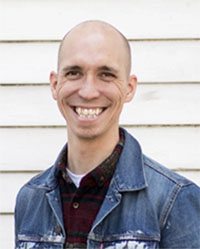
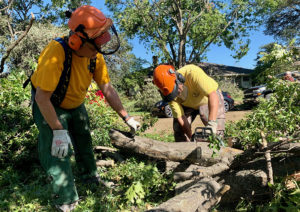

 Pew released its report, “In U.S. Decline of Christianity Continues at Rapid Pace,” on Oct. 17.
Pew released its report, “In U.S. Decline of Christianity Continues at Rapid Pace,” on Oct. 17.